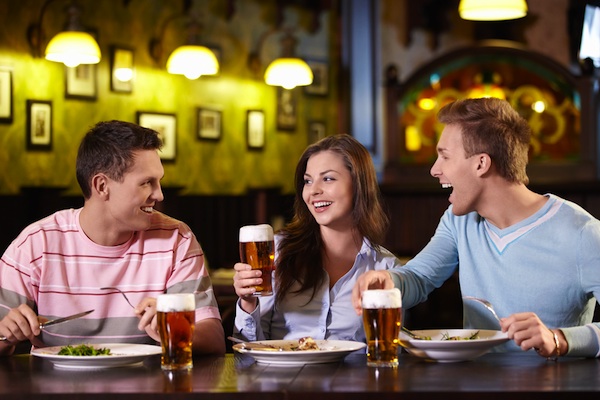Alcohol Releases the Brain's 'Feel-Good' Chemicals

Drinking alcohol triggers the release of endorphins — chemicals that produce feelings of pleasure — in certain areas of the brain, which may help explain why some people drink more than others, according to a small new study.
Researchers compared brain images of 13 heavy drinkers and 12 other people before and after they'd had an alcoholic drink.
In all the study participants, alcohol caused endorphins to be released in specific areas of the brain – and the higher the level of endorphins, the better drinkers reported feeling.
However, researchers also found that the more endorphins were released into the front area of the brain, heavy drinkers tended to feel more intoxicated than those who weren't heavy drinkers.
"This is the first study to show how alcohol makes us feel good," said study co-author Jennifer Mitchell, a neuroscientist at the University of California, San Francisco. "And this is the first time we've seen this in humans."
The study appears today (Jan. 11) in the journal Science Translational Medicine.
Treatments for alcoholism
Sign up for the Live Science daily newsletter now
Get the world’s most fascinating discoveries delivered straight to your inbox.
About 79,000 deaths in the United States each year are caused by excessive alcohol use, according to the Centers for Disease Control and Prevention.
According to one study, a third of Americanadults have experienced alcohol abuse or alcoholism.
For some people undergoing treatment, 12-step programs, detox treatment, or group therapy seem to help. But prescription drugs such as naltrexone are considered the most effective treatment, and they come with certain side effects.
Mitchell said she hopes the study's findings will bring researchers a better understanding of how endorphins control drinking, and could lead to a better drug for people who want to drink less or quit.
Areas of the brain may lead people to drink too much
In the new study, researchers performed brain scans of both groups of drinkers, which allowed them to track the immediate effects of alcohol in the brain.
Endorphin activity increased in brain regions including the orbitofrontal cortex, the front area involved with reasoning and decision-making, and the nucleus accumbens, also known as the "pleasure center."
Endorphins are produced naturally in brain cells. When released, they produce feelings of pleasure and reward, which signal the brain that it likes what you're doing and wants you to do it again.
"Both the nucleus accumbens and the orbitofrontal cortex may be working together on how you feel about alcohol, and what makes you drink," Mitchell said.
"Experts have speculated that in addiction, both of these areas or either are dysfunctional in a way that leads people to drink too much," she said.
Dr. Martin Paulus, a psychiatrist at the University of California San Diego, thought the study revealed “a precise mechanism of how people get drunk."
But the study had a few limitations, noted Paulus, who was not involved with the work.
"The study was too small, and it wasn't clear whether these same mechanisms hold true in males and females," he said. But overall, he said the findings were intriguing.
"A lot of people drink alcohol, but we don’t know how it affects the brain," he said. "This points to a mechanism that you see working, based on the release of endorphins.”
Pass it on: Drinking alcohol triggers a "feel-good" response because it releases endorphins.
Follow MyHealthNewsDaily on Twitter @MyHealth_MHND. Find us on Facebook.










